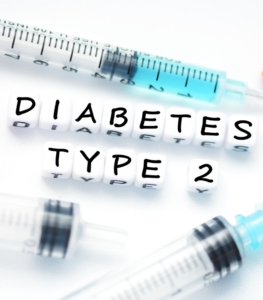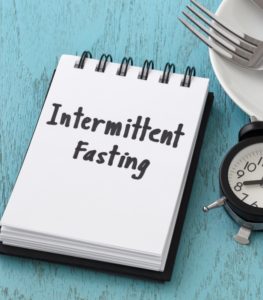The October 2020 client of the month asked me to keep his identity private so I’ve named him Boris and there be no photos of him.
However, semi-retired Boris needs to be praised for his efforts and to give others encouragement that change can happen at any age.
BORIS PRE LOCKDOWN 1
Boris has been training with me on and off since 2017. The on and off issue was related to work with weekly commutes to London. This plus snacking and lack of regular exercise impacted Boris’s health.
In 2019, Boris thought he would have more time to exercise and visit his grand children by taking semi-retirement. But the working and commuting to London from Bath continued to stump him despite good intentions.
After a regular health check-up at the end of 2019, Boris received some worrying news. He was diagnosed with type 2 pre-diabetis, a high BMI score and high blood pressure.
Boris became disappointed with the lack of support from healthcare professionals. Ineffective advice plus little communication frustrated Boris so he decided to tackle the issue himself.
TYPE 2 PRE-DIABETES

Type 2 diabetes is a condition that causes too much sugar in the blood.
When you eat, the hormone insulin is produced from the pancreas. Insulin stores energy in the body. If the diet is high in sugars, the pancreas will continue to pump out insulin. However, the cells may eventually become resistant to the hormone if consumption of highly processed sugary foods is coupled with regular snacking. This leaves the body with dangerous amounts of sugar in the blood. This is called insulin resistance and is a precursor to type 2 diabetes.
Typical symptoms are excessive thirst, frequent urination, tiredness, blurred vision, slow-healing sores, frequent infections and weight gain.
Type 2 pre-diabetes means blood sugars are higher than usual but not high enough to be diagnosed with type 2 diabetes. Pre-diabetes can have long-term damage to the heart, blood vessels and kidneys.
The risk factors of getting type 2 diabetes are:
- OVERWEIGHT – fatty tissue around the abdomen can make cells more resistant to insulin.
- WAIST SIZE – the risk of insulin resistance goes up for men with waists larger than 40 inches and for women with waists larger than 35 inches.
- DIET – eating processed meats, drinking sugar-sweetened drinks, high alcohol consumption, consuming sugary and processed foods is associated with a higher risk of pre-diabetes.
- INACTIVITY – exercise helps to control weight and burns up sugar for energy. In addition, it helps the body to become insulin-sensitive.
- AGE – risk of pre-diabetes increases after the age of 45. However, we are seeing more people under the age of 40 develop the disease.
- FAMILY HISTORY
- SLEEP – repeated disrupted sleep can increase the risk of insulin resistance.
- SMOKING
- STRESS
BORIS – LOCKDOWN

During the first lockdown in the UK, Boris and his wife made two big changes.
The first was daily intermittent fasting using the 16/8 strategy. Boris’s time window for eating was set 11am-7pm. This gives his digestive system a chance to rest. As a result, insulin levels in the body drop. This will aid the body to become insulin-sensitive.
In addition, the body will activate autophagy. Autophagy literally means self-eating. This is very beneficial for good overall health.
Autophagy is a self-preservation mechanism through which the body can remove any dysfunctional cells and recycle parts of them toward cellular repair and cleaning.
After 8 hours of fasting, insulin levels begin to drop and the pancreas produces glucagon, a hormone to prevent blood glucose levels dropping too low. Glucagon acts on the liver by stimulating the conversion of stored glycogen in the liver to glucose which is released into the bloodstream. This is called gluconeogenesis.
Glucagon also breaks down stored fat (triglycerides) into fatty acids for use as fuel by the cells.
Boris’s second big change was to walk / run every morning. When the personal training sessions with Boris started up again, I was astounded to see how great he looked. He had lost a staggering 3 stone (20 kilograms) since our last session in February..

So, a weight training programme was initiated twice a week to compliment Boris’s daily walking/running regime. This helped to add muscle to his frame which strengthened the joints, tendons, ligaments and bones which enabled Boris to continue walking and running. In addition, his mobility has increased significantly as a direct result of the resistance programme.
BORIS – PRESENT
As we enter winter, Boris is fit, well and no longer pre-diabetic. He is enjoying his new healthy life. The second lockdown has prevented the twice weekly London commute which allows him to continue walking, running and lifting weights with the personal training sessions.
I would also like to mention two companies that our October client of the month regularly uses in support of his healthy lifestyle and well-being.
A vegetable company from Devon called ‘Riverford‘ who deliver beautiful local fresh real food to your doorstep. Plus the Bath-based company ‘Thoughtful Bakery‘ who deliver healthy fresh local foods from divine wholesome lunches to vegan treats and real homemade bread.
Well done Boris or whatever the name is. The changes you have made over this turbulent time have been inspirational. You are a worthy winner of the October client of the month.
If you feel motivated by this story and want to know how you can change to a healthier life, please contact me for an informal talk and complimentary training session.
The complimentary workout will de adapted to suit your fitness levels and needs. All levels welcomed including complete beginners to fitness and health.
And who knows. I could be writing about your well-being journey for next year’s October client of the month.
Stay safe, keep your distance and wash those hands.


